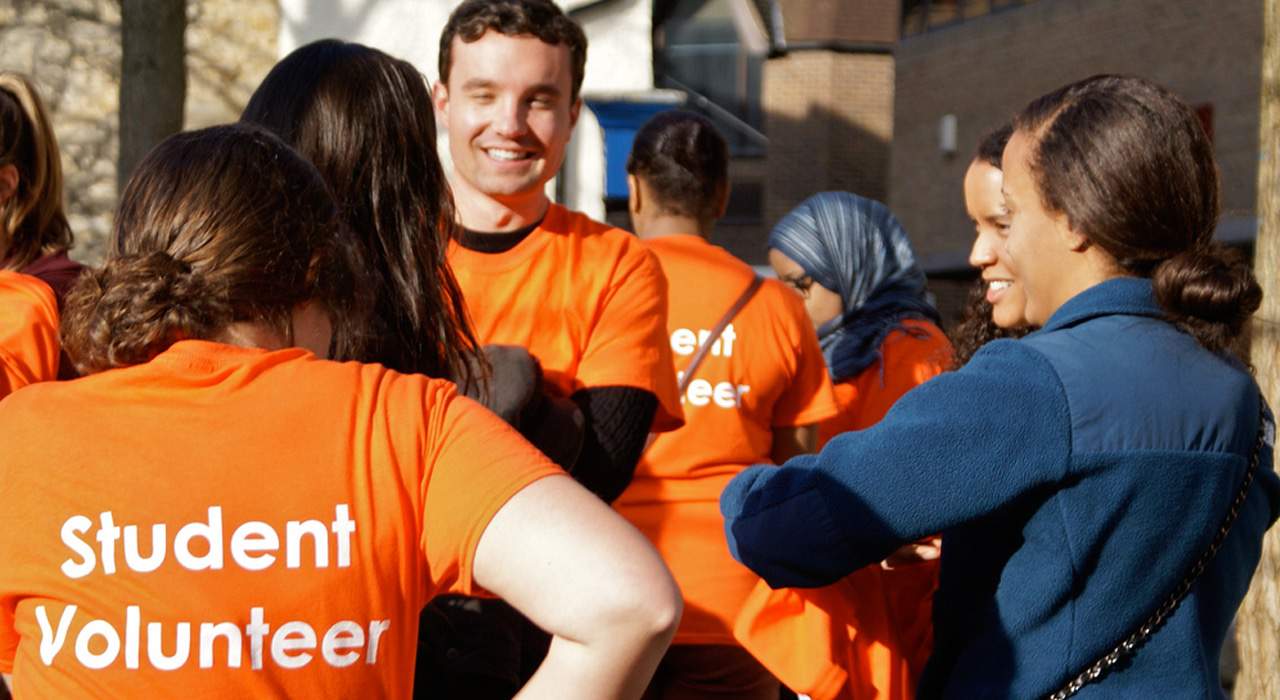This week marks the one year anniversary launch of Step Up To Serve, the Cabinet Office initiative patronised by HRH the Prince of Wales and supported by all three of the major party leaders. That is no mean feat.
Neither is the #iwill campaign’s ambitious pledge, confirmed today – to increase the number of young people participating in meaningful social action from 40% (3 million) to 60% (4.5 million) by 2020.
New research by Ipsos MORI, published to support the campaign’s one year anniversary, reveals that 4 in 10 young people aged between 10 and 20 took part in social action in the last year.
Over half of these young people did so in order to help others; however, “fewer than half […] felt they or others had benefitted ‘a lot’ from their social action, suggesting that there may be scope to promote the benefits of their activities further and/or improve the quality of youth social action opportunities”.
As founding members of Generation Change, a coalition of 18 youth social action organisations, we are committed to supporting more social action opportunities which deliver a ‘double benefit’ – achieving positive impact for the volunteer and the community or cause they support.
But social impact alone is not enough. We need social change.
The report shows that the majority of young people (71%) volunteer “for the enjoyment of helping others”. If we are to achieve the social change this country needs for all its citizens to thrive, it is vital that we translate this enthusiasm for altruism into a culture change that puts people and planet at the centre of society, politics and economics – for all generations.
At the top end of the #iwill campaign’s target age range, students are a crucial – and ever-growing – group in which we need to invest. They are the politicians, business people, bankers, lawyers, donors, voters, consumers and parents of tomorrow. The citizenship behaviour they learn in their formative years will inform their decisions throughout their lives.
By inspiring, connecting and supporting them to participate in social action we are enabling them to create positive impact now – but also empowering them to power social change throughout their lives. Our most recent Impact Report shows that almost half of the students who engaged with our programmes have changed their life or career plans as a result – re-focussing on a social or environmental issue.
The report also reveals that most young people (63%) got involved with social action opportunities through their school or college. Organisations such the Citizenship Foundation, Scouts and Duke of Edinburgh Award have successfully coordinated activities for school-aged children over many years.
In comparison, the social action landscape in UK higher education has been beholden to cycles of boom and bust, investment and cuts – leaving the sector’s offering for students somewhat of a lottery, as we explore in our recent report. At Student Hubs we are committed to facilitating a lifecycle of social action. Our aim is to build a national infrastructure which ensures that there is no drop-off in participation when young people move away to university; and which supports those students who have never volunteered before to do so as a natural part of their university experience. We are particularly proud that, in the academic year 2013-14, one-third of the students who engaged with us had never participated in social action before.
This is a crucial moment in the youth social action movement. We must take advantage of this renewed investment in our sector to challenge apathy and empower a new generation of active citizens to effect change while they are young and throughout their lives. You can read our pledges to Step Up To Serve below – what will yours be?
We pledge to triple the number of students volunteering in our high-impact year-long social action programmes from 1,200 to 3,600 by 2020.
As a founding member of Generation Change we will continue to work with other frontline delivery organisations to embed social action in young people’s lives: ensuring that high-quality voluntary action taken by children and teenagers continues while they are at university and into adulthood.
We will build capacity in higher education institutions to value, support and sustain thriving communities of students engaged in social action. By 2020, we will be engaging with 100,000 students across 20 university Hubs.
Using our on-the-ground delivery model we will work to add to our existing research into the student social action landscape; and advocate for student-led, impact-driven social action at a national level. The aim of this will be to increase the proportion of student social action from 30%, where it has plateaued for many years.
We will leverage our corporate partnerships to increase the number of ‘unusual suspects’ participating in social action as students. While employability is often an incentive for these students to volunteer, we will use our critical engagement model to position a desire to make a difference at the centre of all of our volunteers’ social action.

